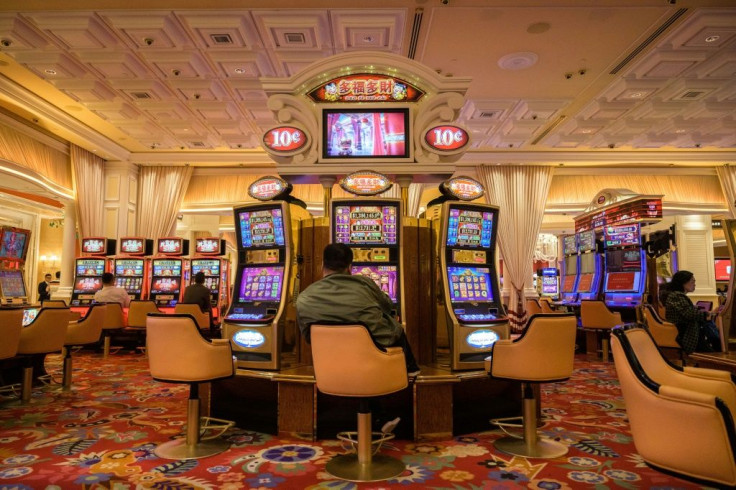Billions Wiped From Macau Casino Stocks As City Eyes Gambling Review
Macau casino operators saw billions wiped off their value Wednesday as their shares collapsed after officials in the world's biggest gambling city unveiled plans for a crackdown that would tighten their grip on the already beleaguered industry.
Hong Kong-listed operators Sands China and Wynn Macau both plunged around 30 percent; SJM Holdings and MGM China lost 25 percent while Melco and Galaxy Entertainment both shed around 20 percent.
Bloomberg News estimated the combined losses for the six big operators amounted to some $14 billion.
The sell-off came after the Macau government announced a 45-day public consultation that included a proposal for direct supervision over the gambling industry, which has faced increasing scrutiny from authorities in recent years.
Officials are looking to put government representatives on licensed operators' boards to oversee their operations, and to criminalise underground banking in the industry.
The move comes as the government in mainland China embarks on a crackdown on a wide range of industries -- including tech and private education firms -- as it looks to tighten its grip on the world's number two economy.
President Xi Jinping is also in the midst of a drive targeting the country's uber-rich and calling for "common prosperity".
"The casino issues are a continuation of what's been a pretty big crackdown," said Jason Ader, of New York-based investment manager SpringOwl Asset Management.
"There's a debate over whether China is even investable right now. You never like to see increased regulation, increased taxes, restrained movement. That all seems to be the status quo," said Ader, who is also a former member of Las Vegas Sands.
The announcement comes as the six licences permitting companies to run casinos in Macau -- the only place in China where casino gambling is allowed -- come up for renewal next June, when the companies will have to bid to hold on to them.
Macau's casinos usually account for about 80 percent of government revenue and more than half its gross domestic product, with upwards of 82,000 people working in the industry by the end of last year representing almost a fifth of the city's working population.

The city could be expected to rake in more in a single week than Las Vegas makes in a month.
However, the sector has been hammered by the coronavirus, with tourism -- the casinos' lifeblood -- wiped out by travel restrictions imposed by the government to prevent the disease spreading.
Gaming revenue for the month of August was 82 percent lower than the same period in 2019.
The industry had already been struggling for years owing to an anti-graft campaign by China.
The city used to be something of a free-for-all for wealthy officials and business figures, both as a place to gamble huge amounts of cash and also skirt China's strict rules on how much renminbi can be taken out of the country.
Under Xi, authorities cracked down on the VVIP junkets and kept a much closer eye on who was spending what and where the money was going.
Much of that market switched to far less regulated casinos in the Philippines and Cambodia.
While acknowledging the gambling income was its financial lifeline, the Macau government has been concerned by the local economy's overreliance on the industry and the associated inflated costs of living and doing business.
In recent years it has sought to diversify its economy, billing itself as a family-friendly tourist and culinary destination -- a strategy that was paying dividends until the coronavirus arrived.
Still, analysts said the operators would not likely consider the proposed measures too problematic.
Bernstein analysts led by Vitaly Umansky said the big-name firms were likely to keep their licences.
"Our view remains that the six operators here today will be here tomorrow," Umansky said.
He added that he did not see "any major concerns" over the proposed direct supervision because firms had already been working closely with officials.
- Bloomberg News contributed to this story -
© Copyright AFP 2024. All rights reserved.







